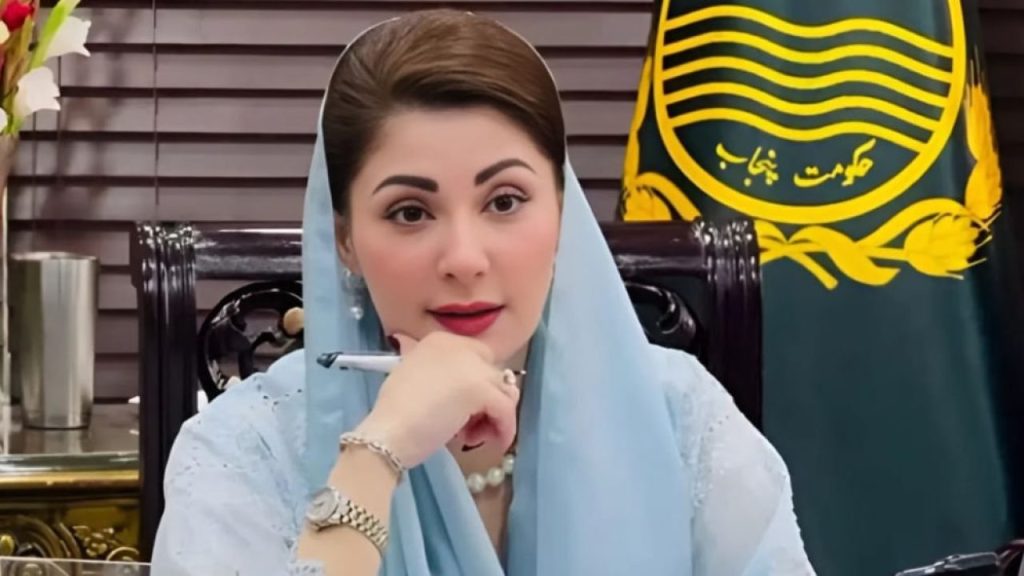On the occasion of World Brain Day, Punjab Chief Minister Maryam Nawaz Sharif issued a powerful message that placed mental health at the forefront of public health priorities in the province. Acknowledging that millions silently suffer from mental and neurological conditions, she urged citizens, institutions, and health professionals to work together in breaking the silence around mental illness.
Her statement comes at a time when mental health issues are increasingly being recognized as key contributors to social instability, poor education outcomes, and lost productivity across all age groups.
Mental Health as a Public Health Priority
Maryam Nawaz emphasized that mental well-being is just as important as physical health and should be treated with the same urgency and seriousness. She highlighted that mental illness if left undiagnosed and untreated can lead to severe personal, social, and economic consequences.
In her address, she called for mainstreaming mental health in policy planning, stressing that it must no longer be a hidden issue. Whether it is depression, anxiety, trauma, stress-related disorders, or neurological conditions, early identification and community-based care must be made accessible to all segments of society.
The Power of Early Diagnosis and Intervention
Chief Minister Maryam Nawaz underlined early diagnosis as the cornerstone of effective mental health care. She emphasized that symptoms often go unnoticed due to lack of awareness or cultural stigma. People delay seeking help, assuming mental illness is either a sign of weakness or something to be ashamed of.
To address this, she urged the creation of mental health screening programs in schools, colleges, workplaces, and community centers. Detecting signs early can lead to timely interventions that prevent deterioration and reduce the burden on families and healthcare systems
Combating the Stigma: A Societal Shift
One of the key themes of her message was the elimination of stigma surrounding mental health. She pointed out that many individuals, especially in rural and conservative areas, suffer silently due to societal judgment. This, she said, results in avoidable suffering and even tragic outcomes like suicide or substance abuse.
Maryam Nawaz encouraged open conversations in homes, classrooms, and offices. “No one should feel ashamed of seeking help,” she stated, adding that a shift in mindset was necessary for sustainable change. She called on religious leaders, teachers, community elders, and influencers to play their part in normalizing mental health conversations.
Expanding Mental Health Infrastructure in Punjab
The Chief Minister reaffirmed her government’s commitment to expanding mental health infrastructure across Punjab. This includes:
- Increasing the number of trained psychiatrists, psychologists, and counselors at primary and secondary health centers
- Integrating mental health units into existing public hospitals
- Establishing helplines and mobile mental health units for remote and underserved regions
- Introducing mental health modules in medical and paramedical education
- Launching awareness campaigns to reach citizens through radio, television, and digital media
She further announced that special mental health facilities would be included in the design of new hospitals and clinics under the provincial health development plan
Youth, Schools, and Community Engagement
Maryam Nawaz paid particular attention to the mental health of young people, noting the growing rates of anxiety, depression, and attention disorders in school and university settings. She proposed:
- Introducing mental wellness sessions in schools and colleges
- Training teachers and student counselors to spot signs of distress
- Developing curriculum components that promote emotional intelligence, resilience, and mindfulness
- Creating safe spaces in educational institutions for students to speak freely and seek help
This focus on youth aims to build a future generation that is emotionally aware, mentally resilient, and equipped to support others.
Bridging the Rural-Urban Mental Health Divide
In her address, the Chief Minister acknowledged that rural communities face even more barriers to mental healthcare. From limited access to specialists to cultural misconceptions, the hurdles are vast.
To bridge this gap, she proposed:
- Establishing tele-mental health services to connect rural patients with urban professionals
- Creating community mental health volunteers to offer peer support in villages
- Working with local NGOs to spread awareness in native languages and culturally relevant frameworks
The Role of Public and Private Sectors
Maryam Nawaz called on the private sector, NGOs, educational institutions, and media to become active stakeholders in mental health advocacy. She emphasized the importance of cross-sector collaboration, where both public and private players invest in awareness, research, treatment accessibility, and workforce development.
She highlighted that mental health is not only a medical issue but also a social and economic challenge one that affects productivity, workforce morale, family stability, and national resilience.
Conclusion: From Awareness to Action
Chief Minister Maryam Nawaz’s message on World Brain Day was not just symbolic it was a call to action. Her emphasis on early intervention, awareness, destigmatization, and healthcare access sets the tone for a broader mental health revolution in Punjab.
The government’s vision is clear: to normalize mental health conversations, strengthen support systems, and provide every citizen the dignity of care and healing. It is a bold, necessary step toward a healthier, more resilient Punjab, where mental health is prioritized, protected, and celebrated as a cornerstone of human well-being.



Comments (0)
No comments yet. Be the first to comment!
Leave a Comment